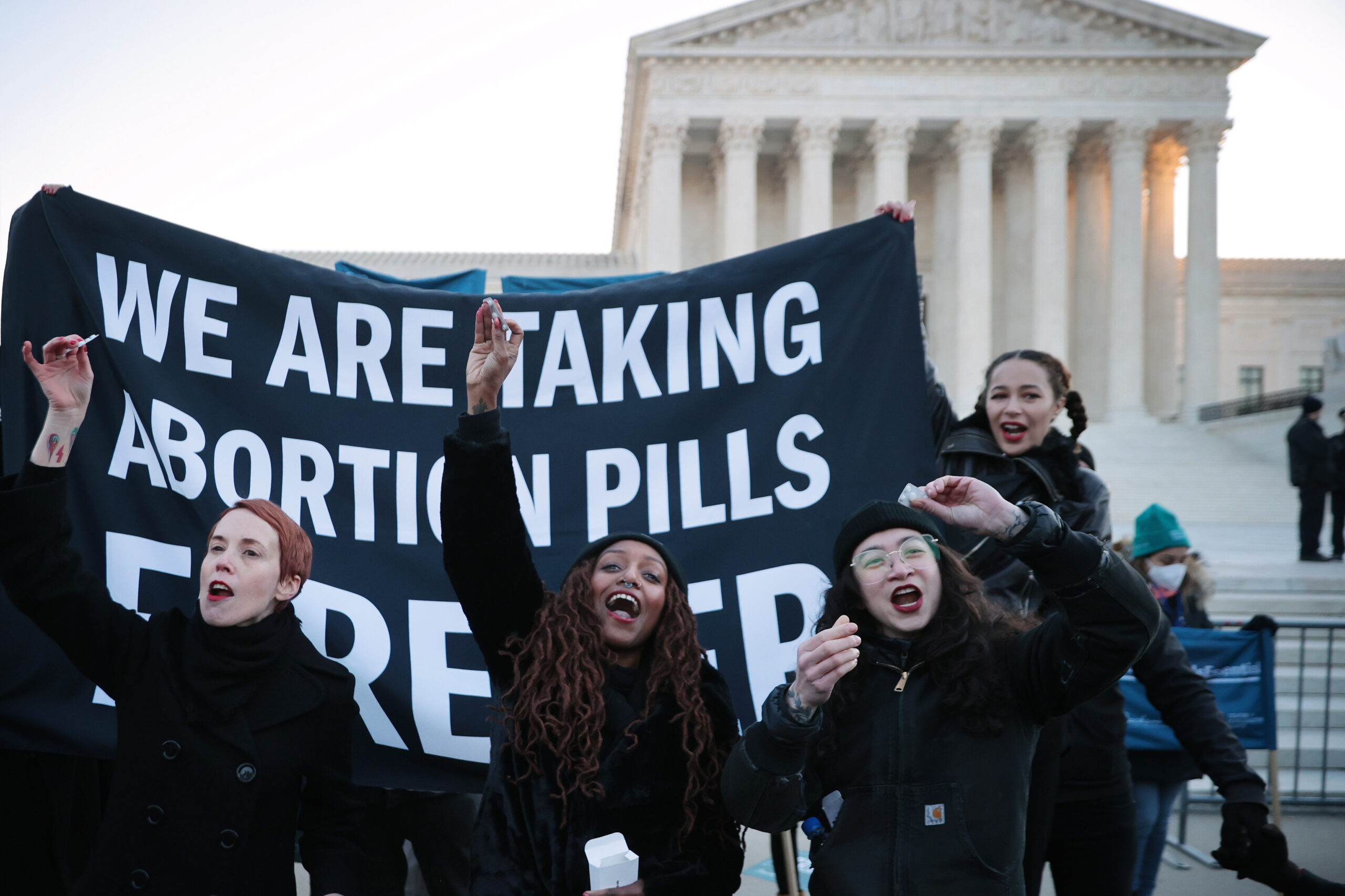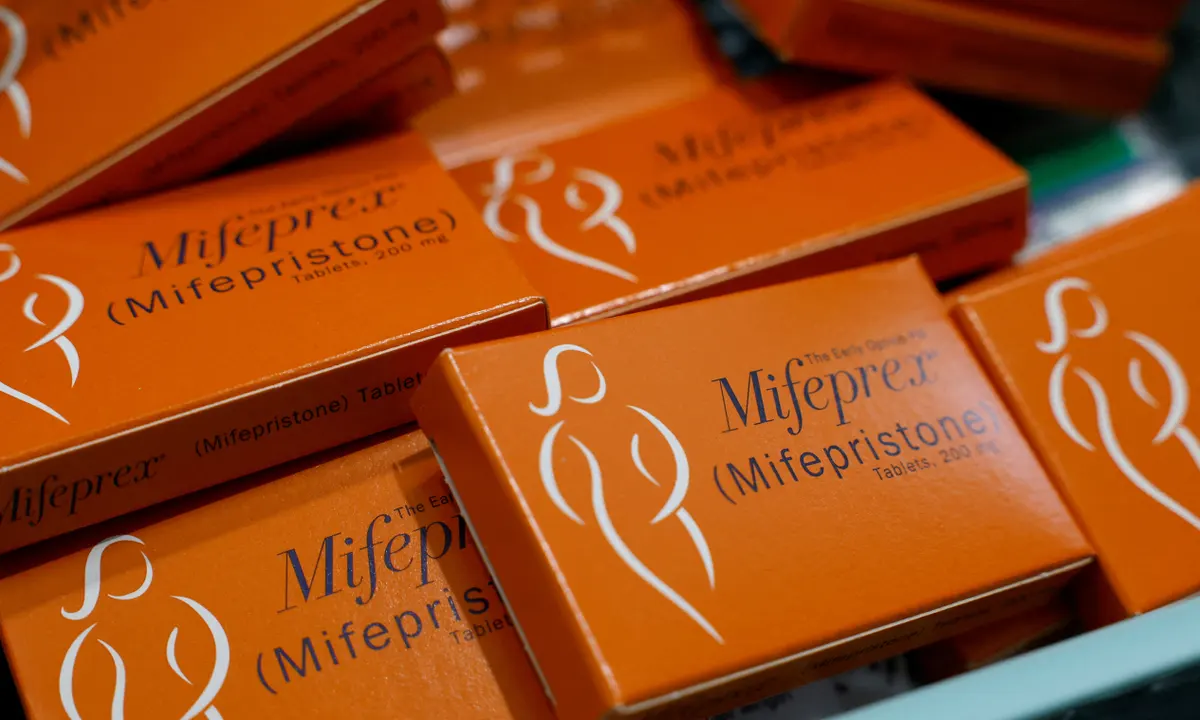Democratic and Republican attorneys general clashed on Friday in opposing arguments over efforts by anti-abortion physicians to remove the abortion pill, mifepristone, from the U.S. market.
Leading a coalition of 22 attorneys general, New York argued that withdrawing mifepristone would inflict “devastating consequences” on women. In contrast, Mississippi led a group of 22 Republican attorneys general who contended that the Food and Drug Administration’s (FDA) approval of mifepristone was flawed.
The arguments unfolded as part of an intensifying federal court battle in Texas prompted by a lawsuit filed last November by anti-abortion physicians seeking to overturn the FDA’s longstanding approval of mifepristone.
Used in combination with misoprostol, mifepristone is a primary method for terminating pregnancies in the U.S., accounting for approximately half of all abortions.
NARAL Pro-Choice America warned in a recent analysis that overturning the FDA’s approval could deny access to the abortion pill for 40 million women.
The coalition led by New York argued that reversing FDA approval would severely restrict access to the pill, potentially forcing women into more invasive surgical procedures or preventing them from obtaining abortions altogether.
They emphasized the disproportionate impact this would have on lower-income women, underserved populations, and those in rural areas with limited clinic access.
“This would have devastating consequences,” the attorneys general asserted to Judge Matthew Kacsmaryk of the U.S. District Court in Northern Texas.
Supporting the claims of the anti-abortion physicians, the coalition led by Mississippi criticized the FDA’s handling of mifepristone, describing its approval process as “deeply flawed.”
“For two decades, the U.S. Food and Drug Administration has acted to establish a nationwide regime of on-demand abortion by licensing sweeping access to chemical abortion drugs—in defiance of federal and state laws protecting life, health, and safety,” the Republican attorneys general argued.
In a separate development, 67 Republican members of Congress filed a brief labeling the FDA’s approval as “unlawful” and urging its reversal, claiming the agency had circumvented legislative safeguards.

The FDA responded by characterizing the lawsuit as “extraordinary and unprecedented,” noting its extensive scientific evaluation and the drug’s decades-long record of safety and effectiveness compared to surgical abortion or childbirth.
Judge Kacsmaryk extended a critical deadline in the case, directing Danco Laboratories, one of the manufacturers of the abortion pill, to present its arguments against the lawsuit, with a response due from the anti-abortion physicians by February 24.
Attorneys for Danco Laboratories argued in court that withdrawing FDA approval would undermine the agency’s authority and immediately harm their business.
Mifepristone has become a focal point in the debate over abortion access following last year’s Supreme Court decision overturning Roe v. Wade.
Last month, the FDA amended its regulations to permit certified retail pharmacies to dispense mifepristone. CVS and Walgreens, the largest U.S. drugstore chains, are preparing to distribute the medication where legally permitted.
Republican attorneys general have cautioned these companies against mail distribution of the pill in their states, suggesting potential legal action.
Legal challenges also extend to state-level restrictions on mifepristone, with lawsuits challenging these regulations on grounds of conflict with FDA directives. GenBioPro, another manufacturer of the abortion pill, is challenging West Virginia’s ban, while a physician in North Carolina contests restrictions in that state.
The coalition of attorneys general led by New York includes California, Colorado, Connecticut, Delaware, Hawaii, Illinois, Maine, Maryland, Massachusetts, Michigan, Minnesota, Nevada, New Jersey, New Mexico, North Carolina, Oregon, Pennsylvania, Rhode Island, Washington, Wisconsin, and Washington, D.C.
The coalition led by Mississippi, opposing FDA approval of mifepristone, comprises Alabama, Alaska, Arkansas, Florida, Georgia, Idaho, Indiana, Iowa, Kansas, Kentucky, Louisiana, Montana, Nebraska, Ohio, Oklahoma, South Carolina, South Dakota, Tennessee, Texas, Utah, and Wyoming.
